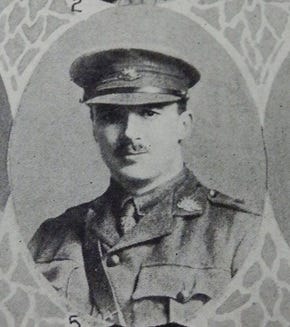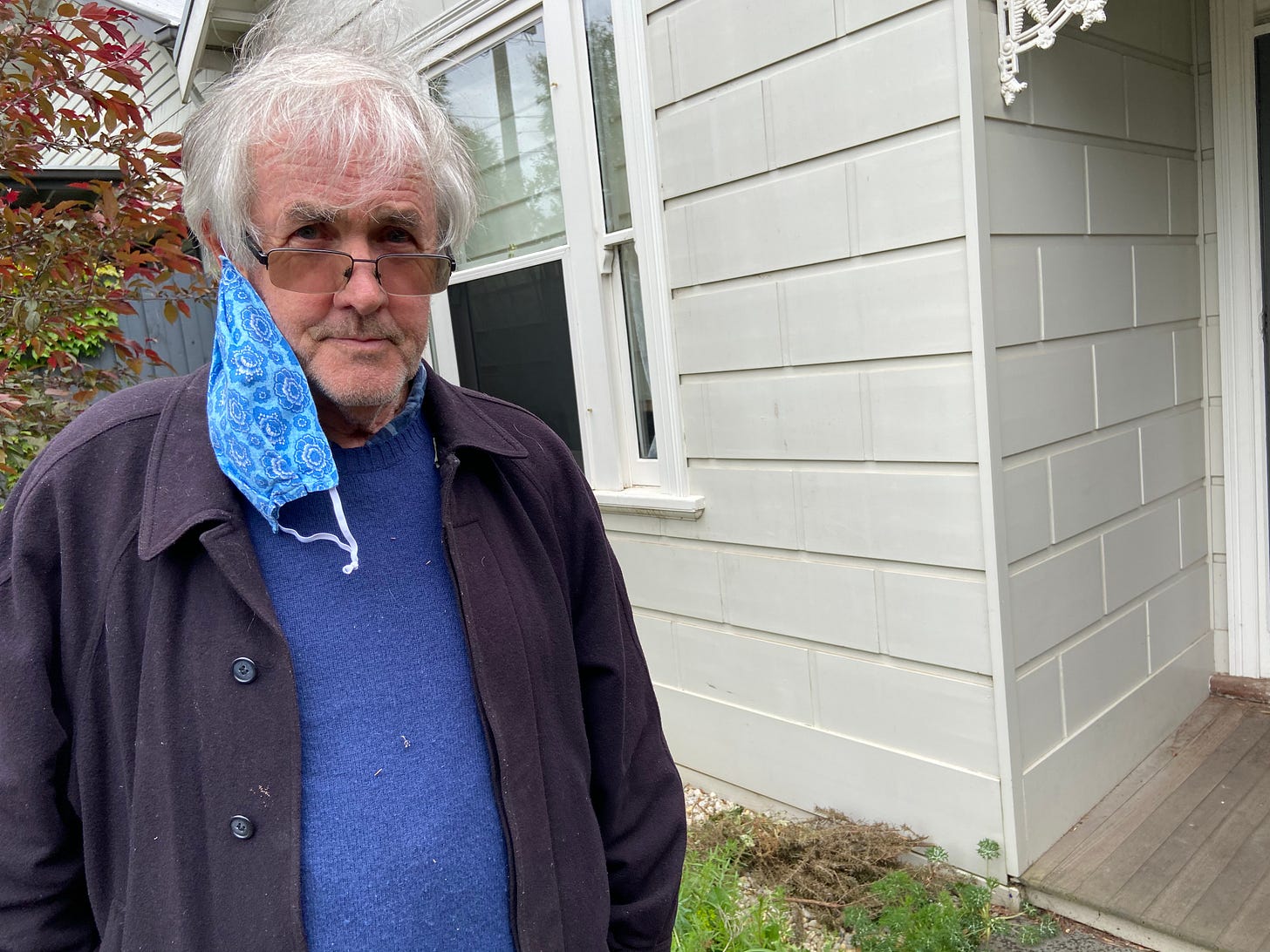'He is all of them, and he is one of us' — Paul Keating's Remembrance Day classic
Australian Prime Minister Paul Keating's legendary Eulogy to the Unknown Soldier from 1993 is finally on YouTube. For years it's been audio only. What a speech.
It’s Remembrance Day here in Australia (just), and it’s about to be the 11th of November around the world. My kids observed their minute’s silence at school, and we shared personal connections — my wife Tamsin’s great grandfather, Captain Franc Carse, died of his wounds on 2nd May 1917. He was 31 years old and an artilleryman. His second daughter, Marie-Louise, Tam’s Gran, was a one year old baby. She always told us she remembered him looking into her cot.
It’s generally acknowledged that the greatest Remembrance Day speech in these parts is Paul Keating’s Eulogy to the Unknown Soldier delivered at the Australian War Memorial in 1993. The occasion was the internment of the remains of one unknown soldier from the Western Front in France to represent the thousands who died there without proper burials or graves.
For years I’ve linked this speech on Speakola, but it was only last year that a friend of the site, Declan Fay, let me know that the actual video is now up online! Very exciting.
I attempted to host Mr Keating on the podcast to talk about the speech, but no luck so far. But I have had the next best thing. The man who largely wrote the speech, Don Watson, did do an Unknown Soldier episode of the podcast in November 2020.
It’s such a beautiful speech. Here’s how it begins:
We do not know this Australian's name and we never will. We do not know his rank or his battalion. We do not know where he was born, nor precisely how and when he died. We do not know where in Australia he had made his home or when he left it for the battlefields of Europe. We do not know his age or his circumstances – whether he was from the city or the bush; what occupation he left to become a soldier; what religion, if he had a religion; if he was married or single. We do not know who loved him or whom he loved. If he had children we do not know who they are. His family is lost to us as he was lost to them. We will never know who this Australian was.
Yet he has always been among those whom we have honoured. We know that he was one of the 45,000 Australians who died on the Western Front. One of the 416,000 Australians who volunteered for service in the First World War. One of the 324,000 Australians who served overseas in that war and one of the 60,000 Australians who died on foreign soil. One of the 100,000 Australians who have died in wars this century.
He is all of them. And he is one of us.
There are many reasons to love this opening but here are a few.
1. The focus on the individual, the idea of one soldier’s actual remains being interred right now, rather than a broader brush opening about the tragedy of so much death, creates immediate focus. It’s a dead man. And we’re burying him — finally. The power is in the singular focus. And it opens like a eulogy.
2. Because we don’t know who he is, we have to imagine the possibilities. And because Don Watson is one of the greatest writers Australia has known, he makes a poetic repetition out of what we don’t know. ‘We don’t know … we don’t know.’
3. He moves from the impersonal to the personal in terms of the ‘we don’t knows’. Birthplace, address, and age are all relatively standard details. But then Watson (and Keating) up the emotional heft for the last of the ‘we don’t knows’.
We do not know who loved him or whom he loved. If he had children we do not know who they are. His family is lost to us as he was lost to them.
That reflective sentence is just sublime. [Is it chiasmas? I think it is. Tell me in the comments, rhetoric buffs.]
4. After the ‘we don’t knows’, the speech slides naturally into what we do know. “He was one of the 45,000 Australians who died on the Western Front. One of the 416,000 Australians who volunteered for service”. Importantly, Watson keeps the beam on our one soldier. It’s still his eulogy, even while we traverse the scale of the national sacrifice.
5. ‘He is all of them, and he is one of us’ ends the section. It’s such a beautiful line, an embracing line, that creates a belongingness across time and space. And it has simple poetic heft —eleven single syllable words, five each side of the conjunctive hinge. The ‘all’ and the ‘one’ sit as perfect oppositional counter weights. There’s sublime harmony to the whole thing.
It’s such a standout line that Watson told me in our chat that he used to be ragged with it in the PM’s office:






